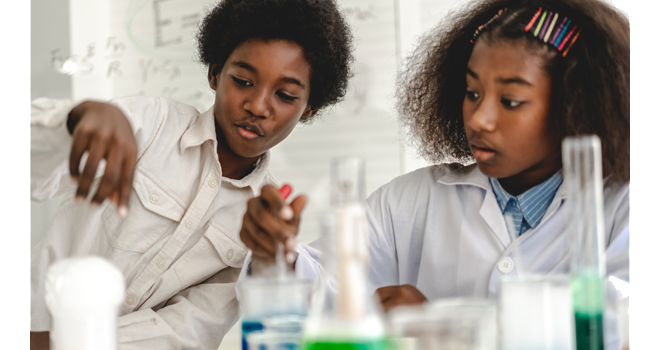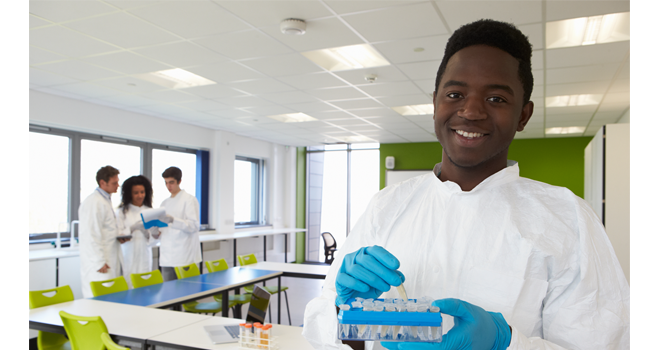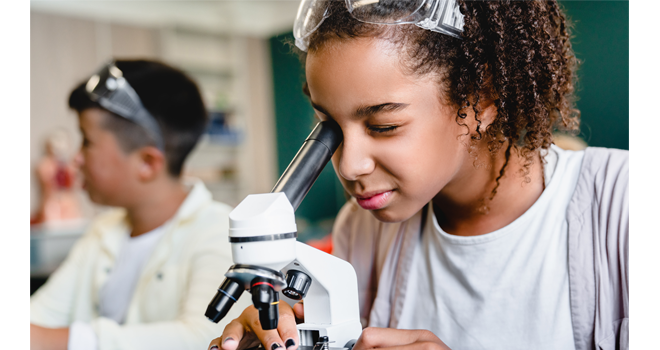Science Camp Information
We welcome students to join the fun while engaging in a high-level scientific lab experience at academic summer camps.
We will offer three Science Camps.

Fun with DNA
Fun with DNA is an entry-level course in DNA science. This camp is designed especially for highly motivated students interested in expanding their knowledge of basic genetics and cell biology. Students are immersed in an environment of hands-on activities and laboratory experiments designed to increase genetic literacy, encourage critical and creative thinking, and spark interest in the field of biotechnology.
Students will:
- construct cell and DNA models;
- use compound microscopes to view various cell types;
- extract DNA from their own cells and from plants;
- use stereo microscopes to observe mutations in fruit flies; and
- genetically engineer bacteria cells with firefly genes.
Details:
- Entering grades 6–7
- Monday to Thursday 9:30am-2:30pm, Parent Day Friday, 9:30-11:00am
- $600 per student

DNA Science
The inauguration of the Human Genome Project in 1988 marked the beginning of a national commitment to apply DNA technology toward understanding human health and development. Biologists have gained the extraordinary ability to dissect any of the approximately 30,000 genes that compose human chromosomes. Tracing the molecular pathway through which hereditary information flows between DNA, RNA, and protein has added rich detail to our understanding of how human life develops from fertilized egg to adulthood.
The abstract nature of molecular genetics can best be overcome by approaching the subject in the same manner as scientists—by asking questions and doing experiments. The DNA Science curriculum introduces high school and college students with little or no research experience in molecular genetics to the elegant tools of modern biotechnology, and is centered around laboratory work. Each experiment acts as a stepping stone for the next. Students begin with the basic techniques of DNA restriction, transformation, and isolation; then apply them to the construction and analysis of a simple recombinant.
Students will:
- examine bacterial growth curves using the E.coli genetic system;
- evaluate the difference between the rapid and classical method of bacterial transformation by calculating transformation efficiencies using pAMP and pKAN plasmids;
- perform a restriction analysis and gel electrophoresis, then graph the results to understand COS sites; and
- digest plasmids with restriction enzymes, ligate the fragments together, then transform the recombinant-DNA, and finally perform a plasmid minipreparation of the new recombinant to identify how it originally ligated.
Details:
- Entering grades 10–12
- Monday to Thursday 9:30am-4:00pm, Friday, 9:30am-2:00pm
- $700 per student

DNA Barcoding
Experience the process of science in this project-based camp. A short "DNA barcode" (about 700 nucleotides in length) is a unique pattern of DNA sequence that can potentially identify any living thing. DNA barcoding projects allow students to link molecular genetics to ecology and evolution—with the potential to contribute new scientific knowledge about biodiversity, conservation biology, and human effects on the environment.
Students will:
- extract and amplify DNA from tissue samples;
- use web-based bioinformatic tools to analyze DNA sequences and identify species of origin;
- create phylogenetic trees to display genetic and evolutionary relationships;
- use building blocks to model how polymerase chain reaction (PCR) is used to amplify DNA barcodes; and
- complete an open-ended project to investigate food fraud or study biodiversity.
Details:
- Entering grades 10–12
- Monday to Thursday 9:30am-4:00pm, Friday, 9:30am-2:00pm
- $700 per student

